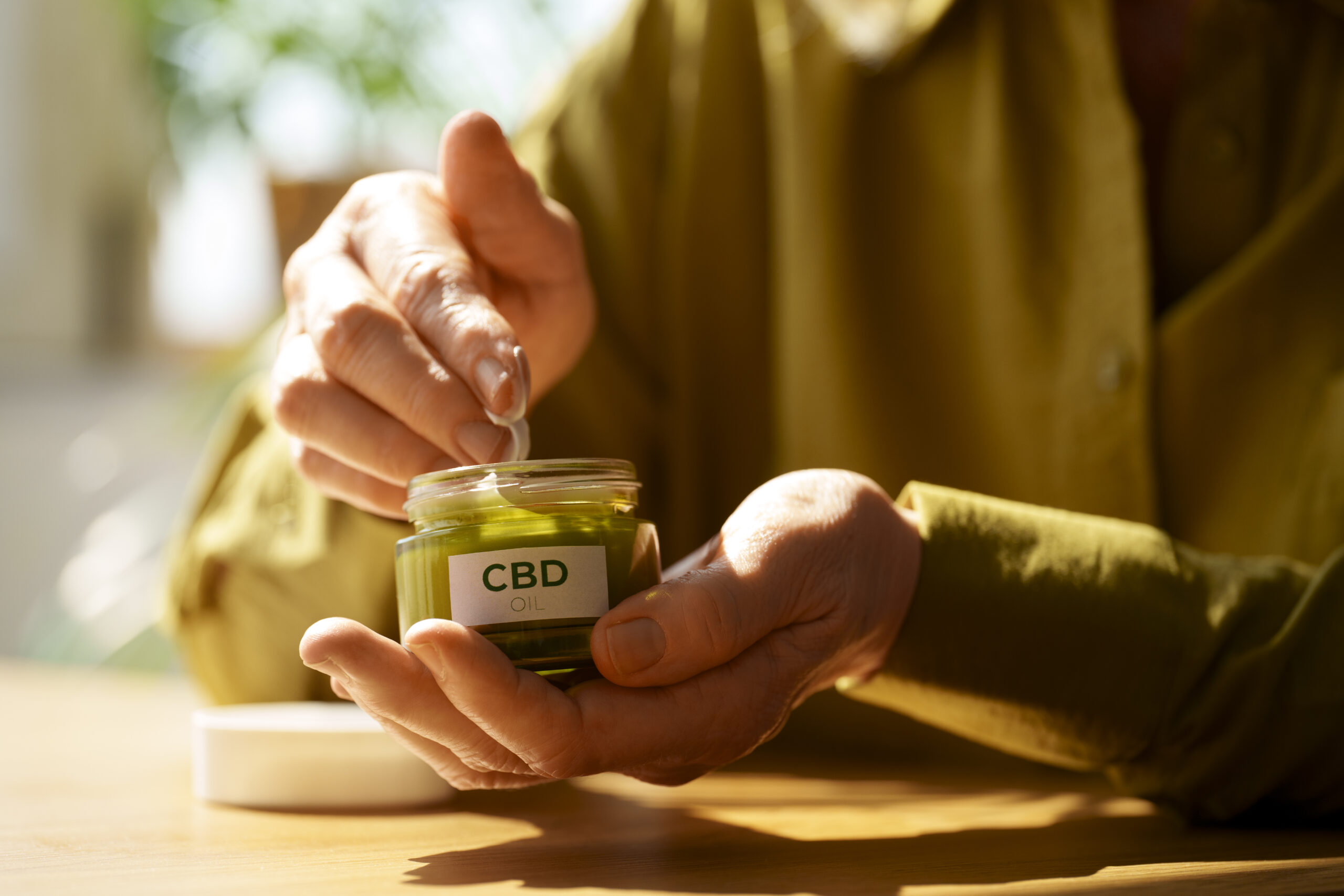Muscle cramps are sudden, involuntary contractions that can cause discomfort or pain, often in areas like the legs, feet, or hands. While there are many causes of muscle cramps, ranging from dehydration to nerve issues, finding effective relief can sometimes be challenging. Cannabidiol (CBD) oil, a non-psychoactive compound derived from the cannabis plant, has emerged as a potential remedy for various ailments, including muscle cramps. This article explores whether CBD oil can effectively help manage muscle cramps based on current research and scientific insights.
Understanding Muscle Cramps: Causes and Symptoms
What Are Muscle Cramps?
Muscle cramps are painful spasms that typically last a few seconds to several minutes. They can occur during physical activity or even when resting. The most common areas affected include the calves, thighs, hands, feet, and abdomen.
Key Causes of Muscle Cramps:
- Dehydration: Insufficient water intake can disrupt the balance of electrolytes in the body, leading to muscle cramps.
- Electrolyte Imbalances: Minerals like potassium, calcium, and magnesium are essential for muscle contraction and relaxation. A deficiency in any of these can cause cramping.
- Overexertion and Fatigue: Intense physical activity can fatigue muscles, making them more prone to spasms.
- Medical Conditions: Conditions such as diabetes, nerve disorders, and poor circulation can contribute to chronic muscle cramping.
- Medications: Some medications, including diuretics and statins, may cause cramping as a side effect.
Common Symptoms of Muscle Cramps:
- Sudden, sharp pain in the affected muscle.
- Hardening or tightening of the muscle.
- Involuntary twitching or spasms.
- Persistent soreness after the cramp subsides.
CBD Oil: What Is It and How Does It Work?
What Is CBD?
Among the several substances included in cannabis plants is CBD, short for cannabidiol. CBD does not give users a “high” like THC (tetrahydrocannabinol) does, but it is well-known for its possible medical benefits, such as ability to reduce pain and inflammation.
How CBD Interacts with the Body:
CBD interacts with the body’s endocannabinoid system (ECS), which helps regulate various physiological functions such as pain perception, inflammation, and muscle control. The ECS comprises cannabinoid receptors (CB1 and CB2) located throughout the body, including in the nervous system and muscles. By influencing these receptors, CBD may help reduce pain and muscle spasms.
Can CBD Oil Help with Muscle Cramps?
1. CBD’s Role in Pain Relief
CBD’s potential as a pain reliever is well-documented in research. Muscle cramps often cause intense pain, and CBD’s interaction with the ECS may help alleviate this discomfort by desensitizing pain receptors.
Research Insights:
- A 2018 study published in Frontiers in Pharmacology suggested that CBD could reduce pain and improve quality of life in patients with chronic pain conditions.
- Another study in The Journal of Clinical Medicine found that CBD might help reduce pain associated with muscle spasms, particularly in conditions like multiple sclerosis (MS).
2. Anti-Inflammatory Properties of CBD
Inflammation often accompanies muscle cramps, especially in athletes or individuals with underlying medical conditions. CBD’s anti-inflammatory effects may help reduce muscle inflammation and, consequently, cramping.
Evidence from Studies:
- A 2020 review in Antioxidants highlighted CBD’s ability to reduce inflammation by inhibiting pro-inflammatory cytokines.
- Animal studies have shown that CBD can decrease muscle inflammation, which may lead to fewer cramps and faster recovery.
3. Muscle Relaxation and Spasm Reduction
CBD’s muscle-relaxing properties could be beneficial for those experiencing cramps caused by muscle tightness or overuse. By relaxing the muscles, CBD may help prevent or stop cramping.
Research Findings:
- A study in Neurotherapeutics found that cannabinoids, including CBD, might reduce muscle spasticity in patients with MS. Although spasticity and cramps are different, the mechanisms of muscle relaxation are similar.
- CBD may also enhance blood flow, which can help muscles receive the oxygen and nutrients they need, reducing the likelihood of cramps.
Comparing CBD to Traditional Muscle Cramp Remedies
Conventional Treatments for Muscle Cramps:
- Hydration: Drinking water and replenishing electrolytes is a common remedy.
- Stretching and Massage: Stretching the affected muscles can help relieve cramps.
- Heat and Cold Therapy: Applying heat or ice can soothe sore muscles.
- Medications: Over-the-counter pain relievers like ibuprofen or acetaminophen are often used to manage pain.
Why Consider CBD Oil?
- Natural Alternative: CBD offers a plant-based option for those seeking a natural remedy.
- Minimal Side Effects: Unlike some medications, CBD is generally well-tolerated.
- Versatility: CBD can be used in various forms, such as oils, capsules, and topicals, providing flexibility in treatment.
How to Use CBD Oil for Muscle Cramps
Dosage and Application:
- Start with a Low Dose: Begin with a small amount and gradually increase until the desired effect is achieved.
- Sublingual Administration: Place CBD oil under the tongue for faster absorption.
- Topical Application: Apply CBD creams or balms directly to the cramping muscle for targeted relief.
Safety Considerations:
- Consult a Doctor: Speak with a healthcare provider before using CBD, especially if you take other medications.
- Check Product Quality: Choose high-quality, third-party-tested CBD products to ensure safety and effectiveness.
Possible Drawbacks and Dangers of CBD Oil
Although CBD is mostly regarded as harmless, some persons may encounter adverse effects, such as:
- Dry Mouth: Maintaining proper hydration can help you.
- Drowsiness: Higher doses of CBD may cause sedation.
- Gastrointestinal Issues: Diarrhea or nausea are reported by some users.
- Drug Interactions: Certain medications, including anti-seizure and blood thinners, may interact with CBD.
What Does the Future Hold for CBD and Muscle Cramping?
Although research into CBD and muscular cramps is still in its early phases, the available information is encouraging. As interest in natural remedies grows, more studies will likely explore CBD’s potential to alleviate muscle cramps and other forms of pain.
Areas for Future Research:
- Human Trials: More clinical trials are needed to confirm CBD’s effectiveness for muscle cramps.
- Optimal Dosage: Determining the best dosage and form of CBD for cramps will be crucial.
- Long-Term Effects: Understanding the long-term safety of CBD use is essential.
Conclusion
CBD oil shows significant promise as a natural remedy for muscle cramps, thanks to its pain-relieving, anti-inflammatory, and muscle-relaxing properties. While more research is needed to fully understand its effectiveness, many people find relief using CBD as part of their muscle cramp management routine. If you’re considering CBD oil for muscle cramps, consult with a healthcare professional to ensure it’s safe and appropriate for your specific needs. By incorporating CBD into a comprehensive approach to muscle care, you may find the relief you’ve been seeking.



